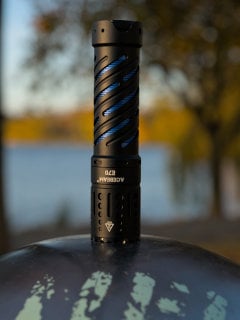So people throw out disposable vapes all the time. I cracked one open to take a look and it turns out they have a 18500 battery in it. So I was thinking of 3D printing a spacer to make it the same size as a 18650 and putting some shrink wrap on them. I just wanted to see what people who know more than me think. Is this a bad idea that is going to burn my house down? a waste of time perhaps?
I did a trial run in my wurkkos fc11 and they seem to work, it charges and looks just as bright.


So if I charge them using the flashlight would that have the protection built in?
No,
Lights designed for charging removable batteries will (usually) have charging circuit designed for protected batteries as they expect the battery to provide feedback on voltage, temps etc.
Random unprotected cells should be charged in an external charger in a fire resistant area and used extremely carefully in lights you don’t mind loosing.
The only thing I would recommend for you to do is send them in for recycling.
Agree with everying but the recycling.
With a proper charger (as you said, in a fire safe place), they can be used.
But… Also as you implied, don’t trust them to be safe on their own (like any unprotected battery).
I have some unprotected, they only get charged with an appropriate charger, and used in devices that are safe with unprotected cells.
Now, if someone doesn’t want to be bothered with managing unprotected cells, then yea, recycle them.
The protection circuit of a cylindrical Li-Ion battery doesn’t report anything. All it can do is to interrupt the circuit if the current gets too high or the voltage too low.
You might mix this up with tool batteries that usually have multiple cells in a series and in parallel, monitored by a battery management system (BMS).
Most quality flashlights have an integrated low voltage protection. The protection PCB will only protect the battery when it’s handled outside of the flashlight, but it will usually reduce the performance and efficiency due to the added resistance.
Most newer flashlights have over-discharge protection, and most flashlights with built-in charging terminate properly without overcharging cells. Both are true of the FC11, and its original battery is unprotected. It is a very popular flashlight, and I have never seen a post about a safety-related malfunction with one in any of the popular flashlight communities.
@[email protected] has a point that cells salvaged from random low-quality devices may be unsuitable for another application (or even their original application). There’s a chance that the current draw will be too high, or the charge rate too fast, for example. There’s also a chance that the cells will be poorly manufactured and/or lacking the basic safety devices that even unprotected cells normally have. I don’t recommend using them.